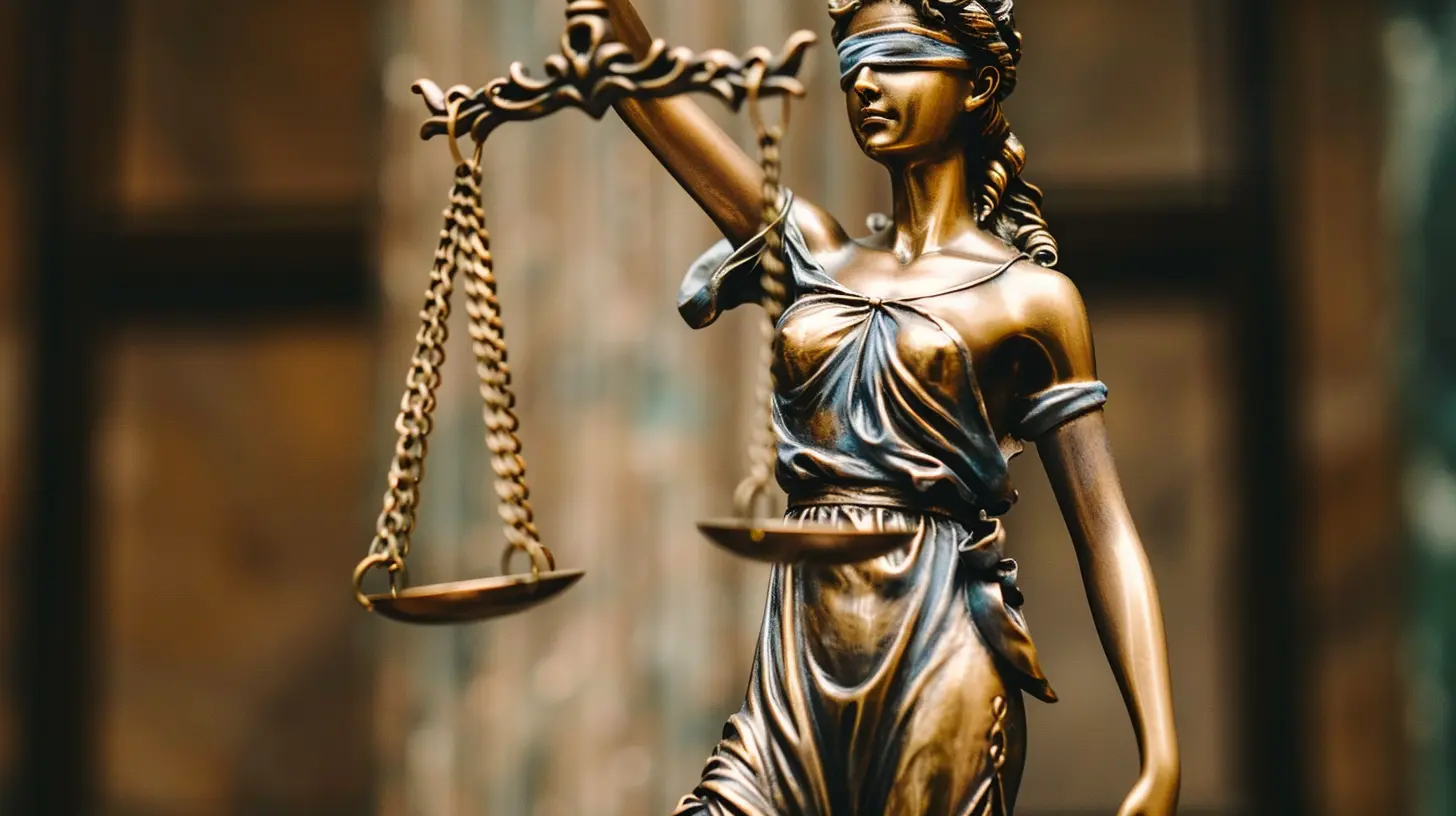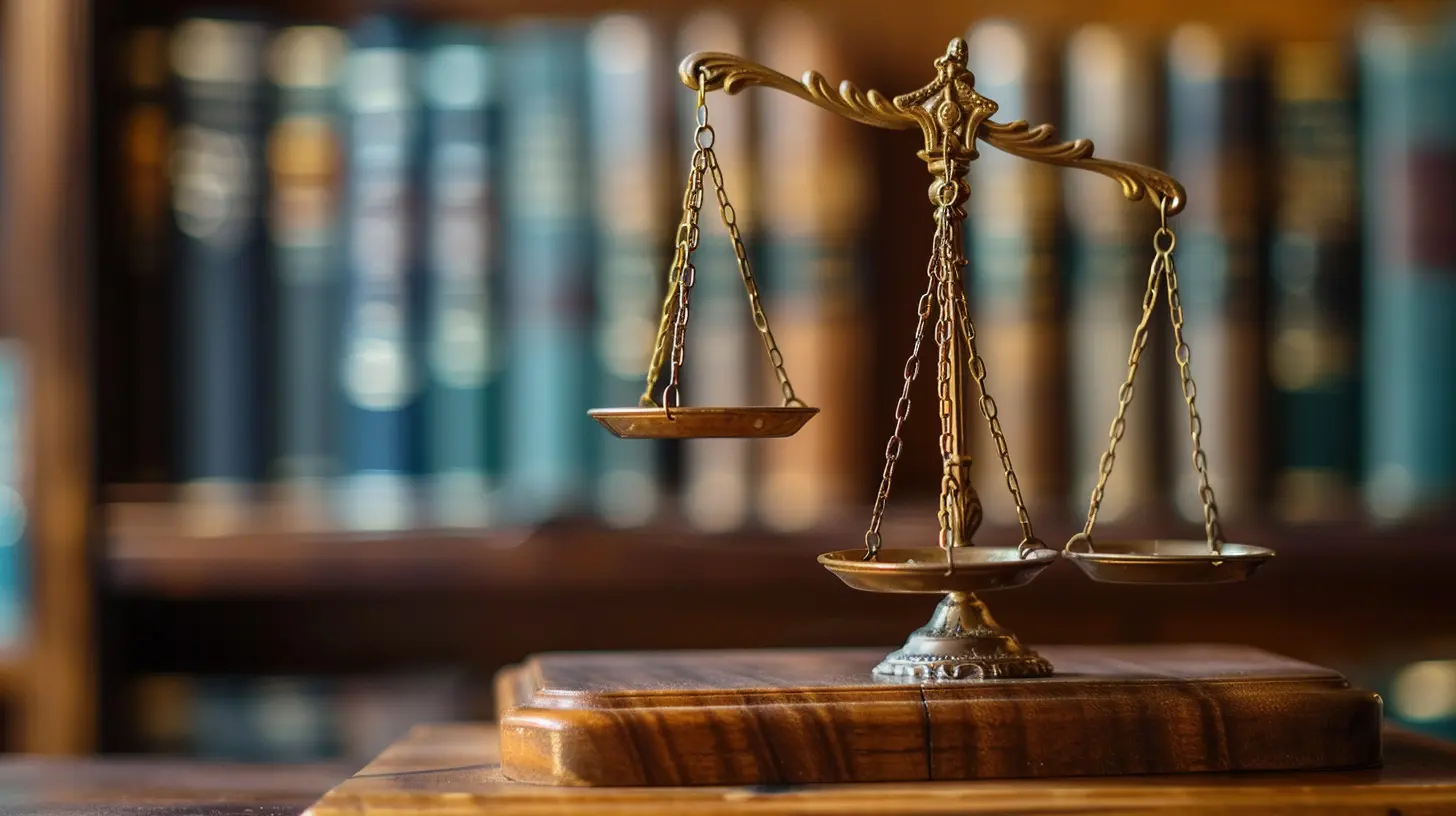What Every Entrepreneur Should Know About Liability
7 October 2025
Let's talk about something that often lurks in the back of every entrepreneur's mind—but rarely gets the spotlight it deserves.
Liability.
Yeah, it kind of sounds like that boring fine print you skip over, doesn’t it? But trust me, this could be the one thing standing between your startup’s success or total meltdown. If you're building a business—whether it’s an eCommerce store from your basement or a tech startup with a co-working space downtown—understanding liability is like knowing how to swim before diving into deep waters.
So grab your coffee (or wine, no judgment here), sit back, and let's unravel the liability mystery together. Because if you're putting your heart, soul, and probably your savings into your business, you’ve got to protect it like a mama bear guards her cubs.
What Is Liability, Anyway?
Before we dive into the nitty-gritty, let’s get clear on what "liability" even means.In simple terms: Liability is your legal responsibility for something. In business, it’s usually tied to money. We’re talking debts you owe, damages you might have to pay, lawsuits you risk getting into, and even mistakes your products or employees might make.
If your business messes up—or if someone thinks it did—you could be held liable. And if you don’t have the right protections in place, your personal assets (think house, car, savings) could be on the line.
Scary? A little. Manageable? Absolutely, once you know what you're dealing with.
The Two Faces of Liability: Personal vs. Business
Here’s where things start to get serious.1. Personal Liability
If you’re running a sole proprietorship or a partnership, you and your business are legally the same thing. Which sounds cozy until you realize that means your business debts are your debts. If someone sues your business, they’re essentially suing you.Suddenly that couch in your living room? Fair game in a lawsuit. Yikes.
2. Business Liability
On the flip side, if you set up a corporation or LLC, your business becomes its own “person” in the eyes of the law. That means the business takes the heat if something goes wrong—not you personally (in most cases).Of course, there are exceptions. If you blur the lines between business and personal finances or act negligently, the “corporate veil” can be pierced. And that’s just as painful as it sounds.
Types of Liability Every Entrepreneur Should Know
Let’s break it down, because liability comes in more flavors than a Baskin-Robbins ice cream menu. 🍦1. Product Liability
Sell products? You’re on the hook if they harm someone, even if the flaw came from a manufacturer.Imagine selling candles that cause a fire. Even if you didn't make them, you're still in the crosshairs.
2. Professional Liability
Any coaches, consultants, or professionals in the house? This one’s for you.If you give advice or perform services and something goes sideways, you're liable. Think missed deadlines, bad advice, or that one time your client felt emotionally wrecked by your coaching.
3. Premises Liability
Got a physical location? Whether it's a fancy office or your home garage, if someone slips, trips, or falls, guess who’s responsible?Yep. You.
This is known as “slip and fall” liability, and attorneys love it.
4. Employer Liability
Hiring your first employee feels like a milestone—and it is. But it also opens the door to a whole new world of liability.Think discrimination claims, wrongful termination, or even harassment cases. Even if you're in the right, you’ll spend time and money defending yourself.
5. Cyber Liability
Operate online? Of course you do. But what if your site gets hacked and leaks customer data?Boom. Liability.
Cyber lawsuits are on the rise, and even small businesses get hit. Sometimes harder than big ones.
Why Ignoring Liability is Like Building a House on Sand
You wouldn’t build your dream house without a strong foundation, right?Well, liability protection is the foundation of your business. Without it, everything else—your branding, marketing, hustle, hustle, hustle—can come crashing down when just one problem pops up.
And let me tell you, small businesses get sued more often than you'd expect. It’s not about paranoia; it’s about being smart.
Protecting Yourself: Smart Moves Every Entrepreneur Should Make
Now let’s sweeten the deal. Liability doesn’t have to be a dark storm cloud hanging over your entrepreneurial dream. With a few smart plays, you can rest easy and focus on growing your biz.1. Choose the Right Business Structure
This is day-one stuff.- Sole Proprietorship — Simple to start but offers zero protection.
- Partnership — Shared resources, but also shared risks.
- LLC (Limited Liability Company) — Offers legal protection and flexibility.
- Corporation — Best for larger ventures or those seeking investors.
Spoiler alert: Most solo entrepreneurs benefit from forming an LLC. It’s relatively easy to set up and provides a solid liability shield.
2. Get the Right Business Insurance
Can we talk about insurance for a second?It’s boring but it’s your best friend when liability comes knocking. Here are a few types you should seriously consider:
- General Liability Insurance – Covers injuries, property damage, and legal costs.
- Professional Liability (Errors & Omissions) – Covers mistakes in services/advice.
- Product Liability – If you sell goods, this is a must.
- Cyber Liability – You NEED this if you operate online.
- Workers’ Comp – Required in most states the minute you hire someone.
Think of insurance as a financial bodyguard—it might seem expensive, but when trouble shows up, you’ll be glad it's around.
3. Keep Your Business and Personal Finances Separate
Seriously, don’t mix your business latte runs with your personal grocery bill.Open a separate bank account. Get a business credit card. Keep receipts and records. It’s not just about being organized—it maintains the legal wall between you and your biz.
Cross that line too often, and suddenly your personal savings aren’t so safe anymore.
4. Get Everything in Writing
A handshake deal in business? Risky.Make contracts your besties. Get everything in writing—service agreements, employment terms, partnership structures, vendor deals, you name it.
Contracts don't just protect you; they make you look professional and serious.
5. Consult a Lawyer Early
You don’t need to keep a lawyer on speed dial, but you should definitely consult one early on. Especially when setting up your business structure or signing deals.Paying a little now can save you a ton later.
Liability and the Online Business World
Running a digital business? Congrats—you’re part of the modern economy. But guess what? Online businesses face their own unique set of liability traps.Privacy Policies and Terms
Ever wonder why every site has those long, unreadable “Privacy Policies” and “Terms & Conditions”?They’re there to limit liability.
If you're collecting user data (even just emails), you need one. If you sell digital products or offer memberships, you definitely need solid terms.
Intellectual Property
Be super careful with content. Don’t copy someone else’s stuff, and make sure your own creations are protected. If someone says you stole their content, that’s a lawsuit waiting to happen.International Sales
Selling globally? Amazing. But every country has its own regulations, tax obligations, and liability rules.Do your homework, and maybe start local before going global.
The Human Side of Liability: Reputation
Here’s something entrepreneurs often forget: liability doesn’t just affect your finances. It can hit your reputation hard.One bad lawsuit—even if you win—can be enough to turn customers away. The effects of legal drama last a lot longer online.
That’s why being proactive is about more than avoiding court. It’s about keeping your reputation clean, your brand trustworthy, and your business sustainable.
Final Thoughts: Liability Isn’t the Enemy
Here’s the deal—liability isn’t a villain lurking in the shadows. It’s just part of doing business.The key is to treat it like fire: dangerous if ignored, incredibly useful when managed.
So if you're an entrepreneur (and I know you are), give liability the attention it deserves. Get structured. Get insured. Stay informed. Because when you’ve got your legal bases covered, you can focus on what really matters: building that amazing business you’ve been dreaming about.
And that, my friend, is worth every ounce of preparation.
all images in this post were generated using AI tools
Category:
Business LawAuthor:

Amara Acevedo
Discussion
rate this article
1 comments
Finley McKnight
Understanding liability is crucial for entrepreneurs; it shapes decision-making and risk management. Ignoring potential liabilities can lead to severe financial repercussions and reputational damage. A proactive approach to liability not only protects the business but fosters trust among stakeholders and clients.
October 9, 2025 at 4:34 AM

Amara Acevedo
Absolutely! Understanding liability is essential for smart decision-making and safeguarding your business's future. Thank you for highlighting its importance!


